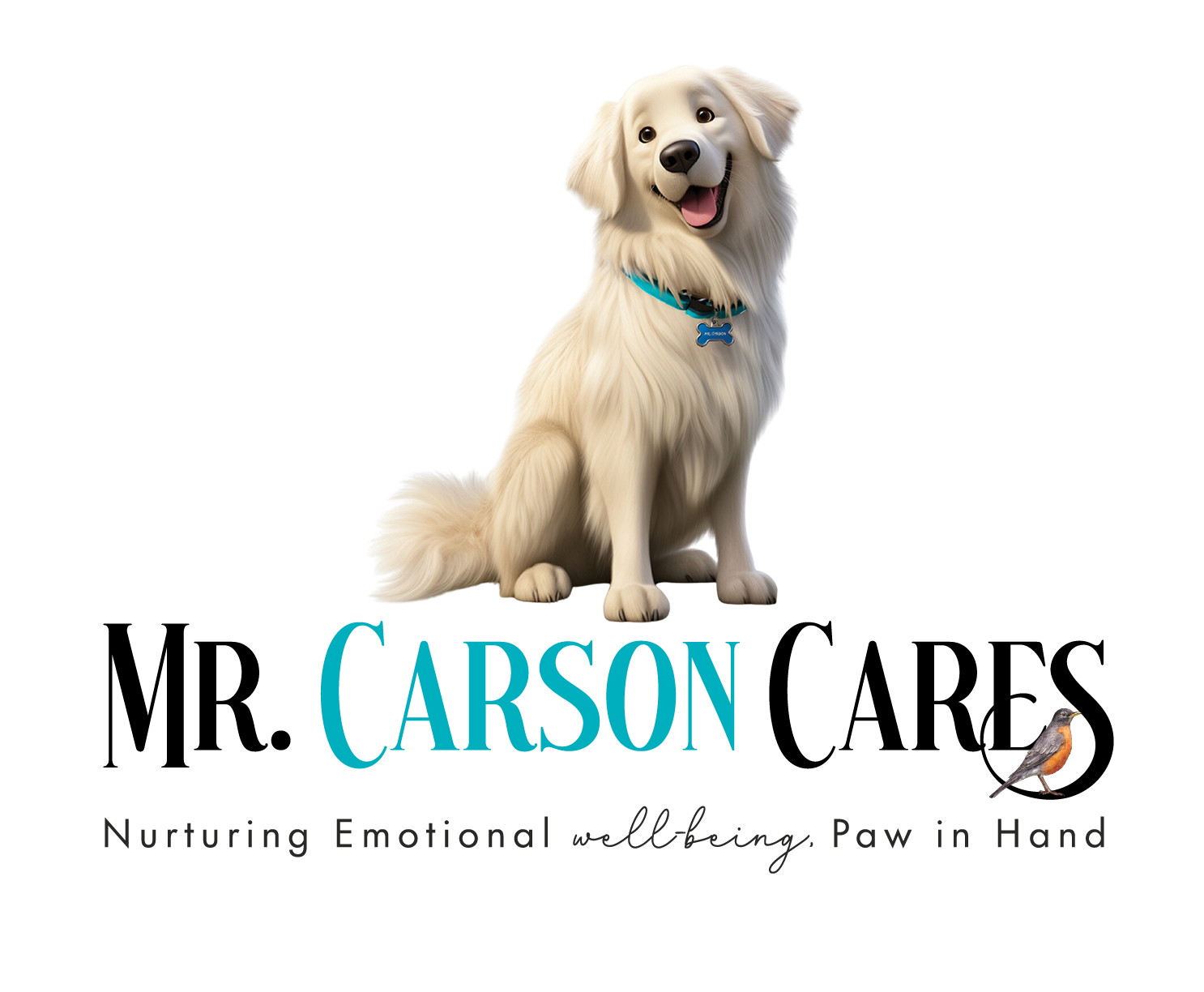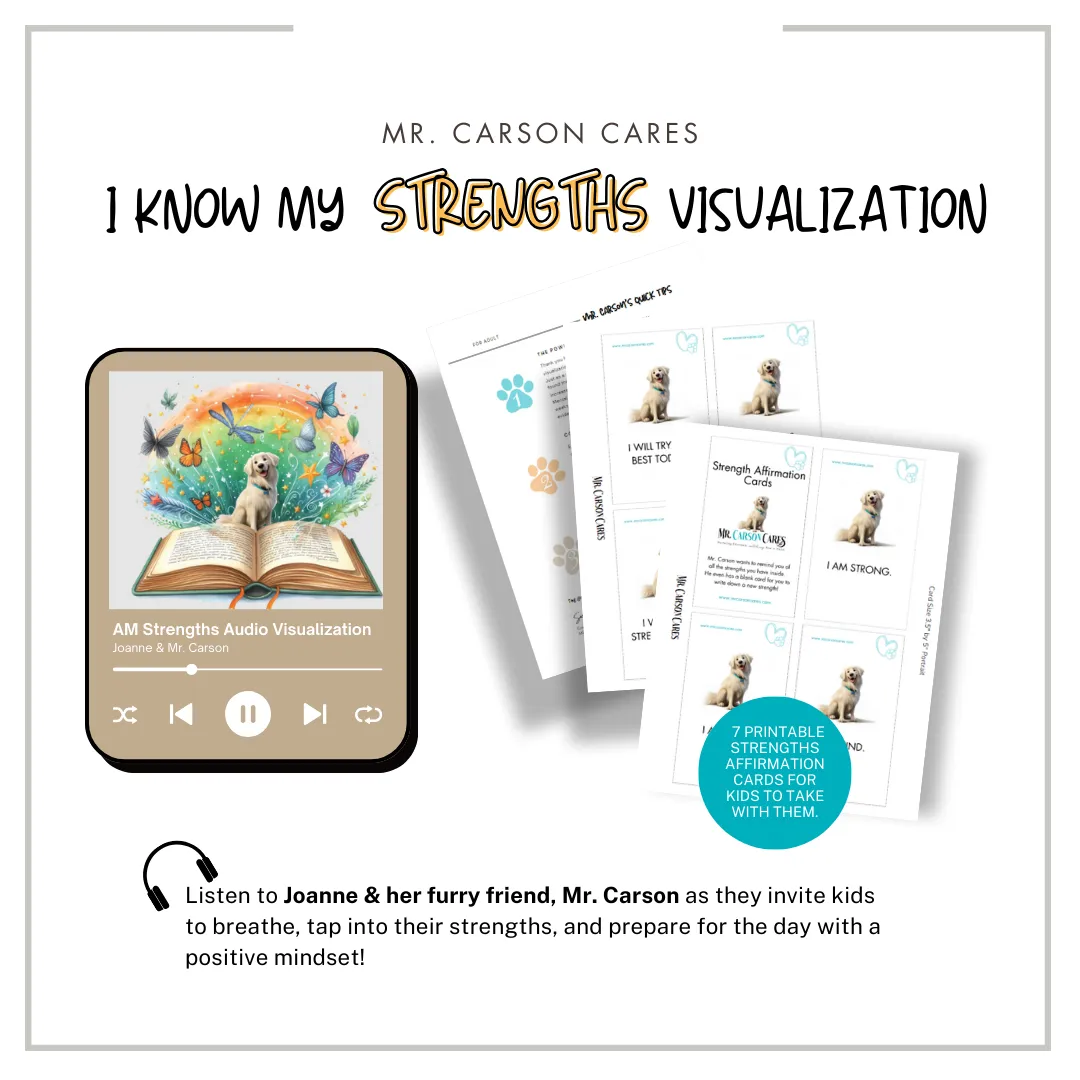
5 Powerful Lessons Animals Teach Us About Resilience and Well-Being
Animals possess an innate wisdom that we can learn from if we take the time to listen. Their behaviours, instincts, and relationships offer powerful lessons in resilience, emotional balance, and navigating life's challenges. Through story-based learning, these lessons can be shared with children, helping them develop emotional resilience and positive psychology from an early age. Inspired by my own experiences with my dog, Mr. Carson, I’ve developed a program to teach kids these valuable life skills through the stories of animals. In this post, we’ll explore how animals can be our greatest teachers in shaping resilience and well-being.
Whether it's asking - 'why do people use animal characters in books and movies'? Or 'why are we so attached to our animal companions' - it comes down to the same reasons. As a researcher, I will disclaim that most of this is based on hundreds of first-hand observations and personal experience and less on scientific study. But I think it makes for a great list of why animals and animal companions (not thrilled with the word pet) are used this way and can be our greatest teachers. So here's my top 5 - I know there are many more!
Live Mindfully (in the present moment)
Animals know their routine. Any of us with pets have experienced our cats or dogs reminding us with their gentle nudges or loud barks and meows that it's time for dinner. Some recent research shows that animals (cats and dogs) have some perception of time, but they may experience it at different speeds. No matter what the research shows, we know how mindful our animals can be. Think of the cat sitting next to you on the arm of the chair, quietly purring for hours. Or the dog playing in the yard only focused on how to win the tug of war with the rope you are playing with. They have a simple approach to life. They aren't ruminating about the past or catastrophizing the future. They are just 'being' in the moment. Their mindfulness can create a sense of grounding and calm for humans around them.
Show Unconditional Love
Yes - we live in a complicated world with a lot of uncertainty. Trust is not easy for other humans, and we often feel certain conditions love us because we look a certain way or act a certain way around others. We can feel that in the closest of our relationships. One beautiful thing about animal companions is they love us unconditionally. They don't love you less because you failed a test or lost a game. They don't turn away because you said something wrong or are in a bad mood. They just love us. When I talk to people grieving their pets and not understanding why they are hurting so much, it often is about how much they miss that unconditional love. What if we could love ourselves like that - with self-compassion, grace, and radical acceptance (even in our messy times)? How different would your day be?
Demonstrate Unwavering Resilience
Animals, especially those in deprecating situations, show awe-inspiring hope and resilience. They hold on, trust strangers, and rebuild their strength for a new life. If you don't believe me, look at Niall Harbison's work with street dogs at Happy Doggo. By the way, if you do - please support his work as it's amazing. When I was at my physical worst with a debilitating hand injury, I didn't look right away for other human examples of resilience. I looked for animal social accounts (like Niall's) and Cole, the deaf dog. It amazes me how these dogs come back from so much pain, mistreatment, neglect, malnutrition, and injury - and rise again to be healthy and strong—and give their love. We can learn so much from this. As a resilience researcher, resilience is just as much about healing in dark corners as it is about rising again in the light.
See The World In Simple Ways
When I think about what we learn through animal characters, the first one that comes to mind are Winnie the Pooh and the movie Christopher Robin. Pooh Bear says it best in that movie, "People say nothing is impossible, but I do nothing every day". Animals are simple and literal. They are easy for children to connect with and can remind adults of simpler times. They don't have imposter syndrome. They must show their best side and be more concise in simple situations. Our animal companions just live and love and rest when they need to. They know how to fight and defend themselves when needed, but overall, they are looking to meet their basic needs, and that's all. I often look at dogs being walked by busy humans on their phones. The dog just walks along, looking up at their human, hoping for a quick eye-to-eye connection. I often wonder what those dogs are thinking! How often would I tell my dog it was time for a walk, and he would sit by the door patiently while I remembered my sweater, answered my phone, searched for my keys and so on until 10 minutes had passed?
"People say nothing is impossible, but I do nothing every day".
Winnie the Pooh
Reflection of Our Best Selves
In positive psychology, we discuss the concept of hope and optimism of 'your best self', defining who we are at our best and then looking at the actions and practices that can get us closer to that version. I believe that our animal companions also reflect our best selves. They see the best in us and act lovingly and compassionately. Over time, you often see pets with similar personalities to their human guardians after a while. They bring out the best in us as we want to care for, protect, and love them. We play and use funny voices when talking to them. We run to pick them up or cuddle them. In all these ways, animals are helping us show the best of humankind - selfless action, empathy, compassion, and care. In pet grief, I see people who aren't just mourning their pets. They are mourning who they were when they were with that pet - the best version of themself. If we examine that, we can learn from and carry those parts of us forward - and teach our kids to do the same.
There are so many famous children's literature and movie characters based on animals (both real and fictional). One of my favourite children's authors is Katherine Applegate. Reading her book, 'Crenshaw' to my son every night is a special memory. All of Applegate's books typically are animal characters. When asked why, she responds that animal narrators can give a fresh perspective on the world, allowing you to say and see things you might otherwise not notice. Frankly, it can be easier to see humans through a non-human lens. This is my experience since embarking on writing.
So, next time you sit down with your cat, dog, or hamster, I encourage you to reflect on how they are your or your child's greatest teachers. When you look into their wide eyes as they see you walk into a room, take a closer look at your reflection.


